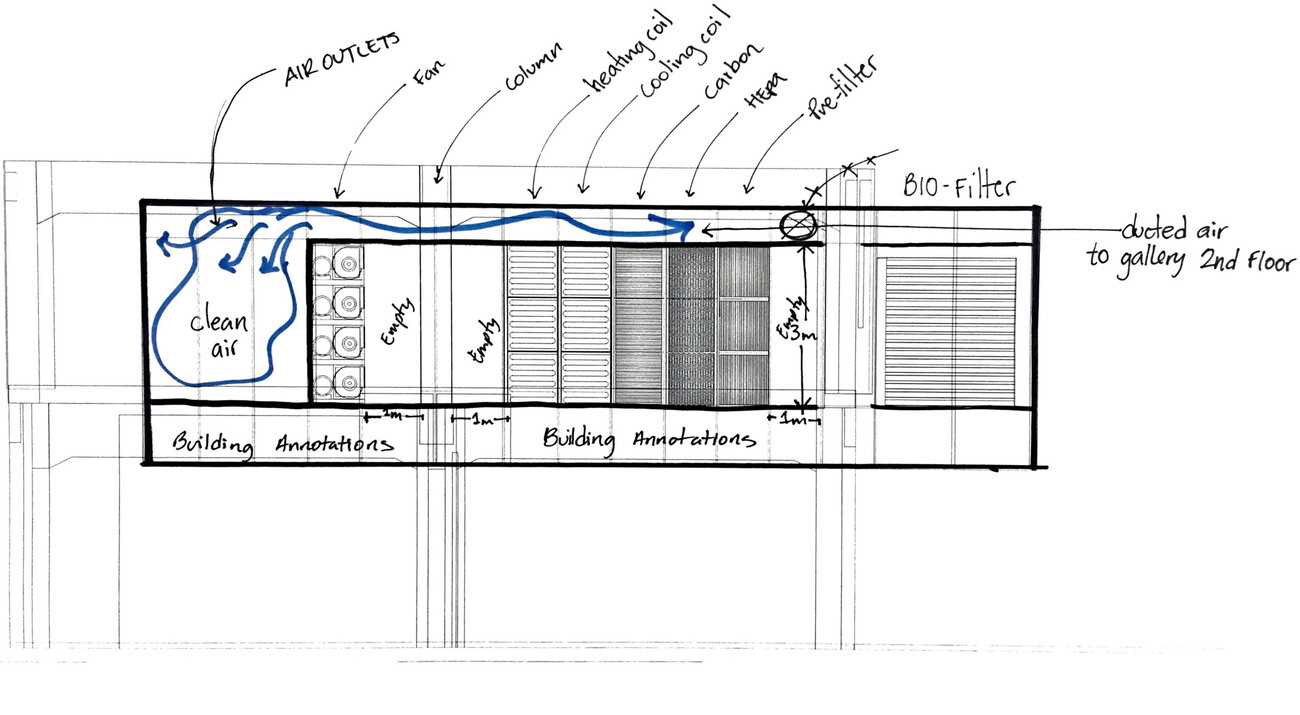Hyundai Motor Studio, Beijing, China


The Hyundai Motor Studio, located in Beijing’s 798 art district, is a venue for celebrating art and environmentally-friendly technologies. Located in a former industrial area, the primary goal of the project is to demonstrate the impact of Beijing’s poor air quality – both the effort required to reduce its negative effects on building occupants and a possible solution.
The educational aspect of the project was primarily accomplished with a glass-walled air handling unit centrally located in the building’s lobby. The transparent walls make visible all the steps required to filter and condition the highly polluted air. 'Building Annotations' bring the air cleaning process to life with an artistic approach; this overhead display visualizes the current state of the air in the system at each corresponding point above and clearly shows the effect of each filter.
The filtering system consists of a biofilter in a glazed volume cantilevered out into the front yard of the building, a prefilter, a HEPA filter, a carbon filter for gas phase pollutants, heating and cooling coils, and a fan wall. The average visitor to the building will have never seen these steps demonstrated before.
Buildings in China are responsible for a large portion of the air pollution. By installing a high-performance envelope, including improved fenestration, highly insulated walls, and a high efficiency radiant floor system, the Motor Studio will reduce its energy use significantly.
The building’s newly added solar chimney, used to drive exhaust, releases pollutant-free ventilation air – a deliberate contrast with the former industrial chimneys spewing polluting smoke. In addition, the building is fully designed with a natural ventilation mode despite the current high levels of air pollution. As the use of coal is phased out and air quality improves, the building will be able to rely on natural ventilation more and more often, further reducing its energy demand.




